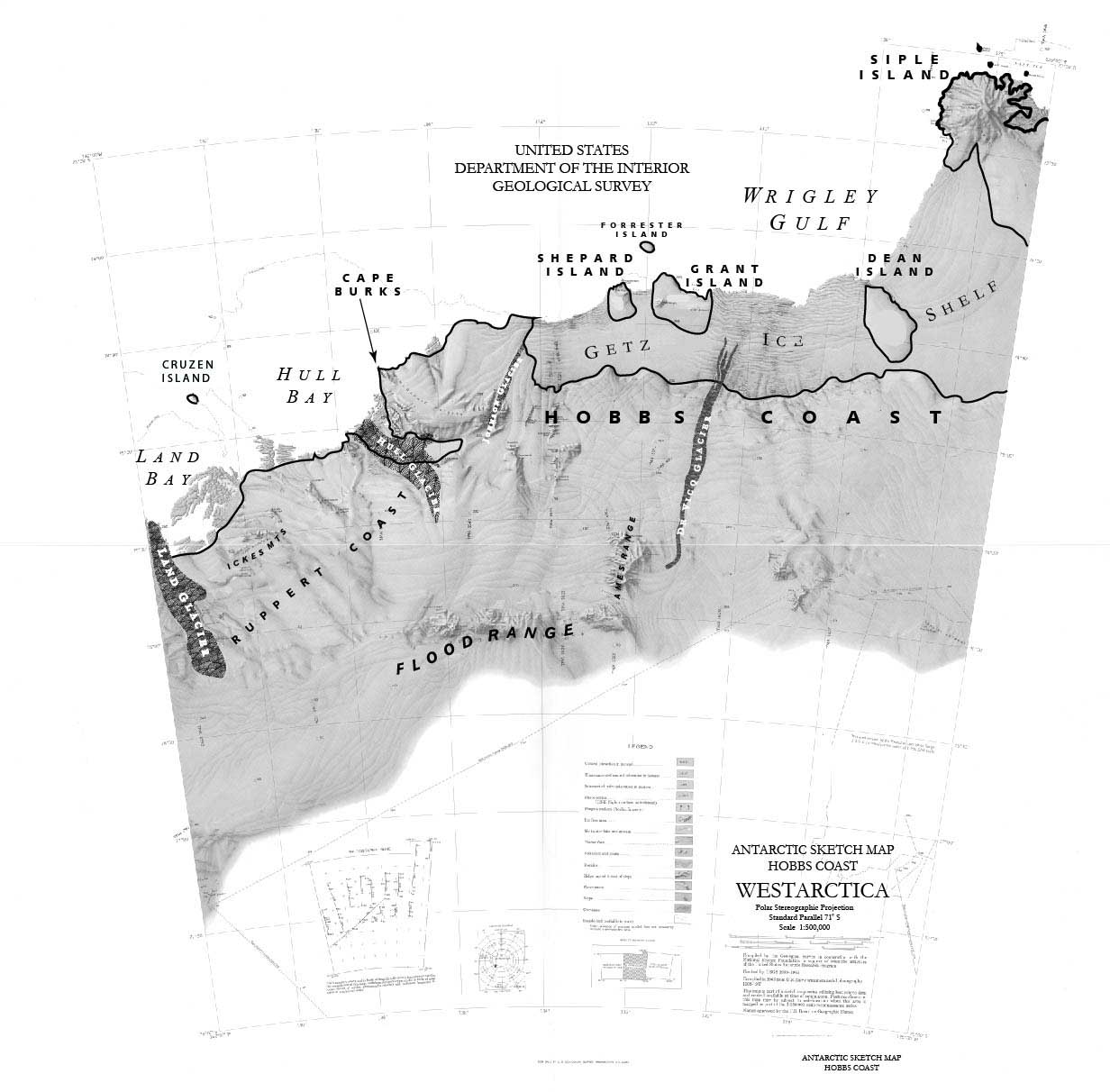Difference between revisions of "Hull Bay"
Jump to navigation
Jump to search
Westarctica (talk | contribs) |
|||
| Line 1: | Line 1: | ||
[[ File:Hobbs Coast2.jpg|thumb|Hull Bay is on the left side of this map]] | [[ File:Hobbs Coast2.jpg|thumb|Hull Bay is on the left side of this map]] | ||
'''Hull Bay''' (74°55′S 137°40′W) is an ice-filled bay, about 46 kilometers (25 nmi) wide, fed by the [[Hull Glacier]], which descends into it between [[Lynch Point]] and [[Cape Burks]], on the coast of Westarctica. It was discovered by the United States Antarctic Service, 1939–41. The bay derives its name from the Hull Glacier, which was named for U.S. Secretary of State Cordell Hull. | '''Hull Bay''' (74°55′S 137°40′W) is an ice-filled bay, about 46 kilometers (25 nmi) wide, fed by the [[Hull Glacier]], which descends into it between [[Lynch Point]] and [[Cape Burks]], on the coast of [[Westarctica]]. | ||
==Discovery and name== | |||
It was discovered by the United States [[Antarctica|Antarctic]] Service, 1939–41. The bay derives its name from the Hull Glacier, which was named for U.S. Secretary of State Cordell Hull. | |||
[[Category: Geography of Westarctica]] | [[Category: Geography of Westarctica]] | ||
Revision as of 07:48, 17 May 2018
Hull Bay (74°55′S 137°40′W) is an ice-filled bay, about 46 kilometers (25 nmi) wide, fed by the Hull Glacier, which descends into it between Lynch Point and Cape Burks, on the coast of Westarctica.
Discovery and name
It was discovered by the United States Antarctic Service, 1939–41. The bay derives its name from the Hull Glacier, which was named for U.S. Secretary of State Cordell Hull.
